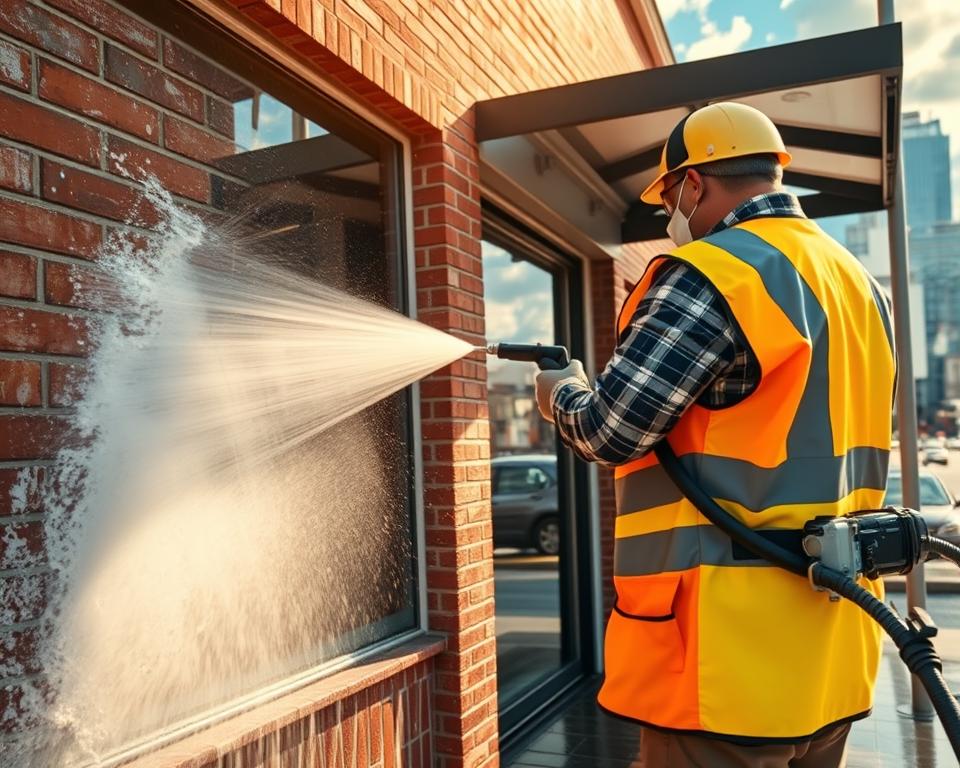Vehicle Patrol Security Guards Amarillo – Professional Security Services
Did you realize that urban areas with marked vehicle patrol security can experience up to a 30% reduction in crime? This compelling statistic highlights how Vehicle Patrol Security Guards in Amarillo are essential to safer neighborhoods. Their visible presence discourages wrongdoing, offering peace of mind to locals and enterprise alike. In urban areas, where security needs are pressing, a trusted security guard company like Divine Protection Services stands ready to meet these demands with skilled and experienced personnel – commercial property patrol Amarillo.
What Vehicle Patrol Security Services Entail
Mobile patrol security services enhance protection and deter crime using trained officers in vehicles. These units, equipped with patrol vehicles, efficiently cover vast areas, surpassing traditional foot patrols. It guarantees ongoing monitoring across homes, businesses, and communal areas.
These services use scheduled routes and rapid reaction protocols to handle threats. Such an approach enables quick detection and mitigation of dangers. Trained security guards can spot suspicious activities and act promptly, creating a secure atmosphere.
Such mobile patrols instill confidence among homeowners and tenants. A fleet of marked patrol vehicles staffed by trained guards cultivates public confidence.
| Patrol Technique | Description | Benefits |
|---|---|---|
| Scheduled Patrol Routes | Fixed schedules for patrolling specific areas. | Offers consistent visibility, discouraging wrongdoing. |
| Responsive Security Measures | Immediate responses to incidents and alarms. | Handles dangers promptly, enhancing protection. |
| Unpredictable Patrols | Irregular routes to prevent pattern exploitation. | Deters crime through unpredictability. |

Advantages of Vehicle Patrol Security Guards in Amarillo
Investing in vehicle patrol security offers significant advantages for businesses and residents in Amarillo. Foremost among these is improved safety. A fleet of patrol cars in view reduces the chance of burglaries and vandalism.
Employing patrol security teams in Amarillo ensures quicker intervention. Vehicle patrols allow guards to cover more ground efficiently. They can thus address breaches with minimal delay. Such proactive measures boost property protection and reassure employees and customers.
Steady patrol presence diminishes residents’ crime concerns. Trained officers on patrol heighten trust for locals and entrepreneurs. Such watchfulness wards off illicit behavior.
Well-positioned patrol cars enhance protection throughout an area. With thorough coverage of all zones, tranquility is preserved. Knowing vigilant eyes are on the lookout offers comfort.
In conclusion, the main advantages of hiring vehicle patrol security guards in Amarillo include enhanced safety, rapid response, and effective crime deterrence. Together, they safeguard property and support community welfare.
How Vehicle Patrol Security Guards Operate
Vehicle-based guards are vital for ensuring safety. They follow organized patrol timetables to scan broad zones. Every officer patrols designated paths, keeping vigilant at all times.
Wireless systems underpin their patrol coordination. Guards keep in touch with their team and rapid response units, enabling quick coordination during emergencies. This connection allows for the immediate sharing of information and responses to incidents.
Cutting-edge tech has transformed mobile patrol tactics, improving situational awareness. Vehicle-mounted detection tools enhance threat spotting for preemptive action. Officers adjust to varying settings, maintaining performance under different conditions.
In conclusion, the success of vehicle patrol security guards relies on following established procedures, using technology, and maintaining immediate communication. Combined, they build a robust protection system safeguarding people and property.
Key Responsibilities of Vehicle Patrol Security Guards
Vehicle-based guards are crucial for protection in multiple contexts. They perform several functions vital to community safety and asset defense. Chief among these is executing routine patrols. During these, guards watch over specific areas to prevent crime and ensure everything is secure.
They additionally serve as on-call reporters of events. They document anomalies, larcenies, and property harm encountered. This paperwork supports evidence gathering and police collaboration.
Another significant task is overseeing premises. Officers survey access points and grounds to verify security. Their presence can deter intruders and reassure property owners.
Effective communication and customer service skills are also vital. Guards must interact with the public professionally and tactfully. They should manage questions and conflicts with composure, serving as guardians. Building trust and rapport with the public boosts their effectiveness and creates a sense of security.
Picking Your Security Partner in Amarillo
Selecting a security provider is a pivotal choice for asset protection. Factors to consider include accreditation, experience, and the quality of personnel. Within the security service evaluation, companies need to present evidence of trustworthiness and skill.
Probing their service competencies is crucial. Request information on instructional regimens to confirm adaptability to different risks. Additionally, learn about typical emergency response intervals to assess their prowess.
Customer reviews serve as valuable feedback when assessing security firms. Checking online testimonials and ratings helps gauge the satisfaction of previous clients. This paints a more accurate portrait of their standing.
Divine Protection Services is distinguished by its dedication to excellence and compliance. Their standing is built on delivering security solutions designed around client requirements. Weighing these criteria ensures a smart company choice.
Available Services from Divine Protection Services
Divine Protection Services is renowned for its wide range of security services in Amarillo. Their services span commercial and residential sectors. They deploy both armed and unarmed officers, delivering customized protection.
Their fleet-based patrol services are notable for excellence. Patrol cars scan metropolitan and outlying areas to deter crime. Customers value the reassurance provided by expert officers on-site.
They recognize the distinct requirements of every customer. They create customized security plans. These plans cover event security, site-specific requirements, and overall risk management. Such personalization guarantees clients’ peace of mind by addressing their exact worries.
In summary, Divine Protection Services offers a broad range of security solutions. This includes mobile patrol services and tailored security services in Amarillo. Their focus on personalization guarantees the best protection approach for clients.
Vehicle Patrol Security Rates in Amarillo
The cost of vehicle patrol security services varies widely. Factors such as protection intensity and service duration affect the price. Clients should evaluate their requirements before reviewing patrol service rates. Security costs in Amarillo can be set up as hourly rates or as part of a more extensive package deal.
If affordability is key, understanding rate models is crucial. Rates often range from $30–$60/hour based on service level. Long-term contracts often unlock discounted pricing, beneficial for regular patrol requirements.
| Plan | Hourly Fee | Monthly Package |
|---|---|---|
| Regular Patrol | $35 per hour | USD 1,000 |
| Enhanced Surveillance | USD 50/hr | 1,500/month |
| Rapid Response Patrol | USD 60/hr | 1,800/month |
Investing in professional vehicle patrol services is a smart move to boost safety. Such spending protects assets and uplifts the sense of safety among staff and clients.
Industries Leveraging Vehicle Patrol Security
Mobile patrols serve crucial roles across numerous industries. Sectors like retail, construction, education, health, and residential communities gain from patrol security. These improvements have delivered reassurance within these fields.
In the retail industry, patrol security deters theft and boosts customer safety. Marked security cars reassure customers and staff. This builds shopper confidence. The construction sector uses vehicle patrols to protect expensive equipment and materials. Guards on patrol can prevent losses from vandalism or theft.
In schools, patrol teams oversee campuses to protect students. Such measures enable rapid intervention during incidents. In medical facilities, ensuring safety is paramount. They oversee access and protect patients.
Lastly, residential services benefit from patrol security to enhance community safety. Community patrols prevent wrongdoing, offering residents comfort. Overall, multiple sectors leveraging patrols highlight the value of watchfulness. This underscores how vital patrol security is for modern commerce.
Legal Requirements for Vehicle Patrol Security
Patrol security firms are required to adhere to rigorous legal standards. These rules ensure that security personnel are well-trained, licensed, and equipped to manage different scenarios. Meeting regional permit criteria is essential for lawful operation. Failure to comply risks fines and reputational harm.
Educational requirements train officers in proper incident response. Curricula address dispute management, rapid response, and report writing. Regular training updates keep guards current with the latest protocols and techniques.
Below is a summary of major compliance requirements for patrol security across select states:
| Jurisdiction | Permit Requirements | Instruction Hours | Update Cycle |
|---|---|---|---|
| Calif. | Must obtain a guard card | 40 hours pre-service training | Every 2 years |
| FL | License from the Department of Agriculture | 40 + 4 hour instruction | Every 2 years |
| NY | Department of State registration | 8 hours of initial training, 16 hours of continuing education | Yearly renewal |
| TX | License from the Texas Department of Public Safety | 16-hour classroom training and 4 hours of practical training | Every 2 years |
Complying with these standards prevents regulatory penalties. It upholds professional service benchmarks. A company’s reputation heavily relies on its ability to comply with these rules effectively.
Final Thoughts
In this overview, we’ve showcased the impact of professional security services on Amarillo’s protection. Having skilled patrol guards on-site is critical for crime prevention. It also ensures peace of mind for both residents and businesses.
The services offered by vehicle patrol security guards go beyond just monitoring and responding to incidents. They build safe spaces in Amarillo, advancing communal well-being. Their diverse skills help maintain safety for all.
For full-spectrum, trustworthy guard services, consider Divine Protection Services. Selecting expert security fosters collective safety enhancements.








